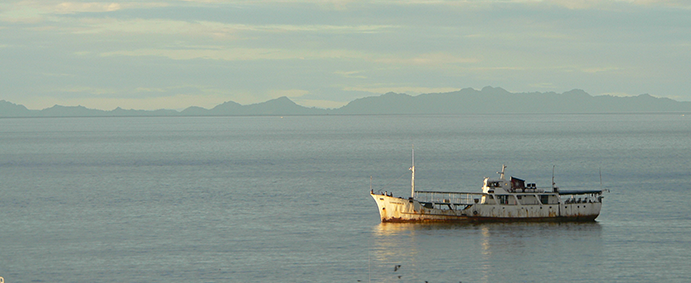ABM Archive Website
THIS WEBSITE CONTAINS ARCHIVE MATERIALS FOR HISTORICAL REFERENCE ONLY
For up-to-date information, including our latest appeals, news, and resources, please visit our current website.
Solomon Islands
 |
|
Solomon Islands scenery. © Brad Chapman/ABM. |
The Solomon Islands are a beautiful archipelago in the South Pacific Ocean, to the east of Papua New Guinea.
Lush tropical rainforest engulfs many of these islands, and adventure-seeking tourists come to explore extinct volcanos, snorkel the pristine coral reefs, or investigate the many WWII wrecks scattered through the jungle and sea.
For the 600,000 people who call the Solomon Islands their home, however, there are many challenges living in this tropical oasis.
Climate change is having a tangible impact on the natural environment, increasing the frequency of severe cyclones and strong storm surges. Rising sea levels have already claimed six of the islands, forcing inhabitants to abandon their homes and seek refuge on neighbouring lands. With 5,313 km of coastline throughout the country, this phenomena appears as an ever-present risk for the majority of Solomon Islanders, a fact that is often expressed to newcomers with utmost gravity.
With growing strain on livelihoods from depleted fish stocks, deforestation, and the salinization of arable land, an increasing number of youth are moving to the capital city of Honiara. Despite optimistic hopes for stable work and decent income on the main island, many are disappointed when they arrive. Youth unemployment currently stands at 51.5% (ages 15-24), with the total unemployment rate not much lower at 34.8%. In 2016, the gross national income per capita was US$1,561, with 45.6% of the population living below the official poverty line (PPP $1.90 per day).
This poverty places an enormous strain on young families, which often manifests in relational conflict, alcoholism and child absenteeism from school. In 2016, a devastating 63.5% of women reported experiencing violence from an intimate partner. And although primary school enrolment stands at 100% for this age group, the dropout rate is a whopping 28.5%, with the average child completing just 5.3 years of schooling in total.
ABM has partnered with the Anglican Church of Melanesia (ACOM) to address these urgent issues, together designing a comprehensive plan to address the impacts of Climate Change, natural disasters, and the challenges facing families throughout the country.
ABM is also committed to supporting further capacity development within the Church, ensuring staff members are fully equipped to meet the challenges head-on. ACOM has six dioceses within the Solomon Islands, and around 32% of the population identifies with this well-established Church, making their reach extensive throughout the country.
Your financial and prayer support is essential in enabling this work to continue, facilitating a release from crippling cycles of poverty for many, and safe-guarding families from violence and disaster for generations to come.
2021 projects in the solomon islands
 |
These projects are part of the Community Development Program: Learn more about ABM’s Programs |


